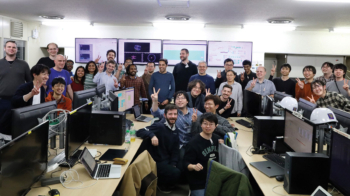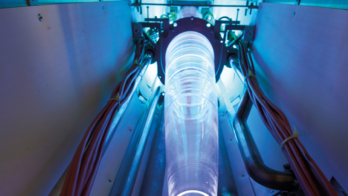
New-Zealand company MARS Bioimaging Ltd has used technology developed at CERN to perform the first colour 3D X-ray of a human body, offering more accurate medical diagnoses. Father and son researchers Phil and Anthony Butler from Canterbury and Otago universities in New Zealand spent a decade building their product using Medipix read-out chips, which were initially developed to address the needs of particle tracking in experiments at the Large Hadron Collider.
The CMOS-based Medipix read-out chip works like a camera, detecting and counting each individual particle hitting the pixels when its shutter is open. The resulting high-resolution, high-contrast images make it unique for medical-imaging applications. Successive generations of chips have been developed during the past 20 years with many applications outside high-energy physics. The latest, Medipix3, is the third generation of the technology, developed by a collaboration of more than 20 research institutes – including the University of Canterbury.
MARS Bioimaging Ltd was established in 2007 to commercialise Medipix3 technology. The firm’s product combines spectroscopic information generated by a Medipix3-enabled X-ray detector with powerful algorithms to generate 3D images. The colours represent different energy levels of the X-ray photons as recorded by the detector, hence identifying different components of body parts such as fat, water, calcium and disease markers.
So far, researchers have been using a small version of the MARS scanner to study cancer, bone and joint health, and vascular diseases that cause heart attacks and strokes. In the coming months, however, orthopaedic and rheumatology patients in New Zealand will be scanned by the new apparatus in a world-first clinical trial. “In all of these studies, promising early results suggest that when spectral imaging is routinely used in clinics it will enable more accurate diagnosis and personalisation of treatment,” said Anthony Butler.





